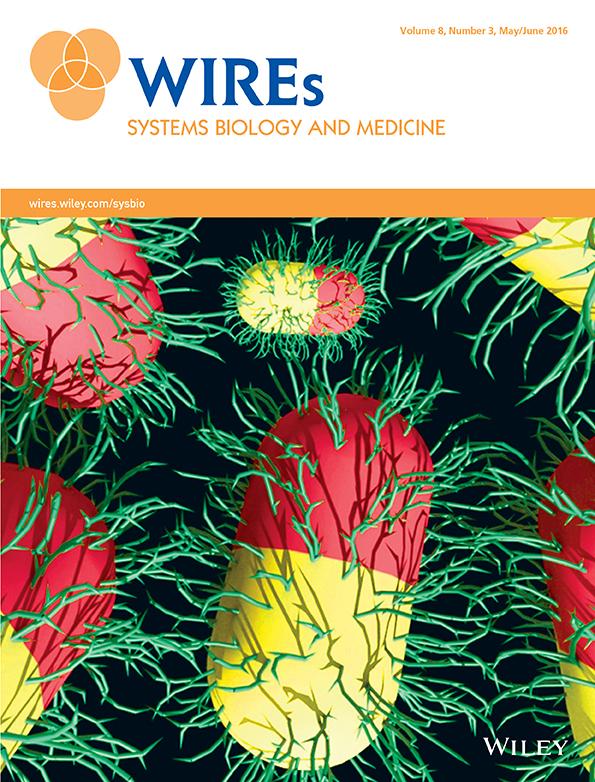Modified mRNA as a therapeutic tool to induce cardiac regeneration in ischemic heart disease
IF 7.9
Q1 Medicine
Wiley Interdisciplinary Reviews-Systems Biology and Medicine
Pub Date : 2017-01-01
DOI:10.1002/wsbm.1367
引用次数: 31
Abstract
Ischemic heart disease (IHD) is a leading cause of morbidity and mortality in developed countries. Current pharmacological and interventional therapies provide significant improvement in the life quality of patient; however, they are mostly symptom‐oriented and not curative. A high disease and economic burden of IHD requires the search for new therapeutic strategies to significantly improve patients’ prognosis and quality of life. One of the main challenges during IHD is the massive loss of cardiomyocytes that possess minimal regenerative capacity. Recent understanding of the pathophysiological mechanisms underlying IHD, as well as new therapeutic approaches provide new hope for patients suffering from IHD. Synthetic modified mRNA (modRNA) is a new gene delivery vector that is increasingly used in in vivo applications. modRNA is a relatively stable, non‐immunogenic, highly‐expressed molecule that has been shown to mediate high and transient expression of proteins in different type of cells and tissues including cardiomyocytes. modRNA properties, together with its expression kinetics in the heart make it an attractive option for the treatment of IHD, especially after myocardial infarction. In this review we discuss the role of gene therapy in cardiac regeneration as an approach to treat IHD; traditional and innovative gene delivery methods; and focus specifically on modRNA structure, mode of delivery, and its use for the induction of endogenous regenerative capacity, mainly in the context of IHD. WIREs Syst Biol Med 2017, 9:e1367. doi: 10.1002/wsbm.1367修饰mRNA作为诱导缺血性心脏病心脏再生的治疗工具
缺血性心脏病(IHD)是发达国家发病率和死亡率的主要原因。目前的药物和介入治疗显著改善了患者的生活质量;然而,它们大多是症状导向的,而不是治疗性的。IHD的高疾病和经济负担要求寻求新的治疗策略,以显着改善患者的预后和生活质量。IHD期间的主要挑战之一是具有最小再生能力的心肌细胞的大量损失。最近对IHD病理生理机制的认识以及新的治疗方法为IHD患者带来了新的希望。合成修饰mRNA (Synthetic modified mRNA, modRNA)是一种新型的基因传递载体,在体内的应用越来越广泛。modRNA是一种相对稳定、非免疫原性、高表达的分子,已被证明在包括心肌细胞在内的不同类型的细胞和组织中介导蛋白质的高表达和短暂表达。modRNA的特性及其在心脏中的表达动力学使其成为治疗IHD的一个有吸引力的选择,特别是在心肌梗死后。在这篇综述中,我们讨论了基因治疗在心脏再生中的作用,作为治疗IHD的一种方法;传统和创新的基因传递方法;并特别关注modRNA的结构、传递方式及其在诱导内源性再生能力方面的应用,主要是在IHD的背景下。中国生物医学工程学报,2017,32(1):444 - 444。doi: 10.1002 / wsbm.1367
本文章由计算机程序翻译,如有差异,请以英文原文为准。
求助全文
约1分钟内获得全文
求助全文
来源期刊

Wiley Interdisciplinary Reviews-Systems Biology and Medicine
MEDICINE, RESEARCH & EXPERIMENTAL-
CiteScore
18.40
自引率
0.00%
发文量
0
审稿时长
>12 weeks
期刊介绍:
Journal Name:Wiley Interdisciplinary Reviews-Systems Biology and Medicine
Focus:
Strong interdisciplinary focus
Serves as an encyclopedic reference for systems biology research
Conceptual Framework:
Systems biology asserts the study of organisms as hierarchical systems or networks
Individual biological components interact in complex ways within these systems
Article Coverage:
Discusses biology, methods, and models
Spans systems from a few molecules to whole species
Topical Coverage:
Developmental Biology
Physiology
Biological Mechanisms
Models of Systems, Properties, and Processes
Laboratory Methods and Technologies
Translational, Genomic, and Systems Medicine
 求助内容:
求助内容: 应助结果提醒方式:
应助结果提醒方式:


